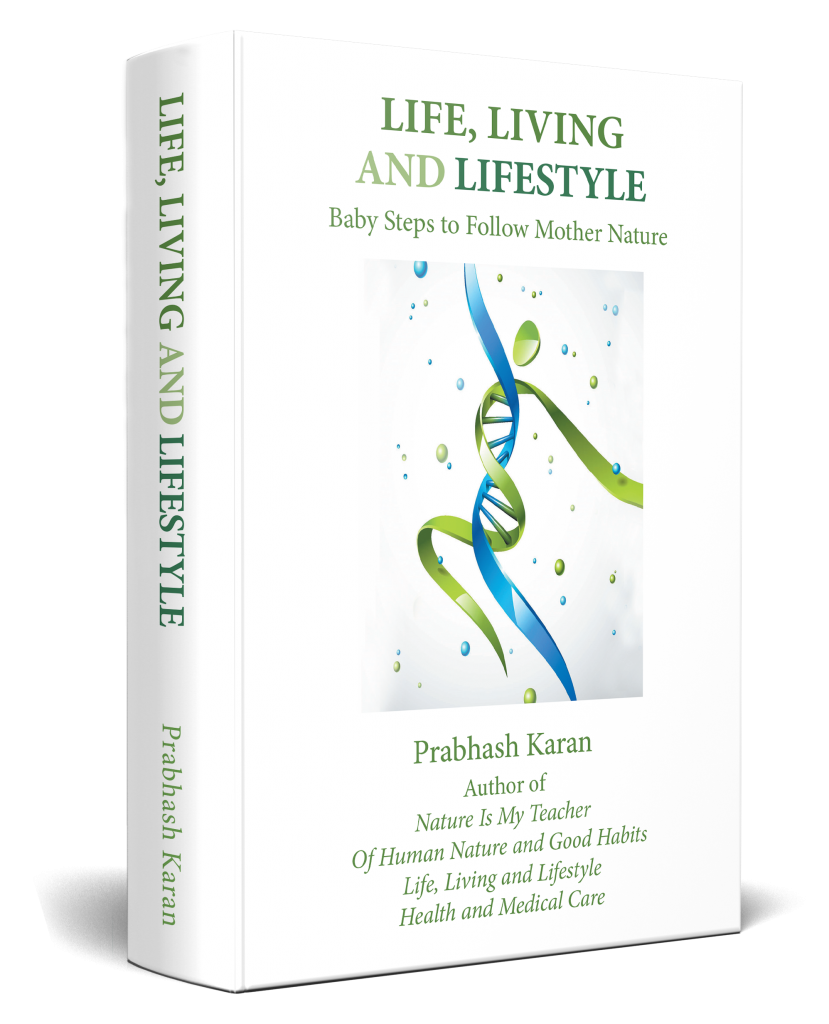
A life is what is given to us; a lifestyle is what is given by us. Research claims that maintaining only five good habits—eating a healthy diet, exercising regularly, drinking only in moderation, not smoking, and maintaining a healthy body weight—can not only keep the life vibrant through years but also extend women’s life expectancy at age fifty by fourteen years and men’s by twelve years. The book, Life, Living and Lifestyle, illustrates these aspects of lifestyles with a special connection between human evolution and civilization. This book, along with its four companion books—“Nature Is My Teacher,” “Of Human Nature and Good Habits,” “How to Win Nature and Enjoy Good Life,” and “Health and Medical Care”—constitutes a series that tells the nature-human connection and its implication in our daily life, in the related set of separate episodes.
Life, Living and Lifestyle deals with lifestyle experiences of daily living. The book contains these chapters: Active Lifestyle (as we grow, we travel through a series of institutional communities: first our family then our school and university, then the workplace, then local and global institutions); Play and Exercise (the guidelines of World Health Organization [WHO] on physical activity for an adult is very attainable: 75 minutes of vigorous exercise or 150 minutes of moderate exercise per week); Joy of Yoga (“I lost weight,” “I quit smoking,” “It de-stressed me,” “I sleep better,” “It saved my marriage,” “It improved my child’s grades,” “I am now pregnant,” “It saved my family”—on and on and on goes the claims of yoga practitioners); Lose Weight (by definition, in the centimeter-gram-second [CGS] system, the BMI number is a person’s weight in kilograms [kg] divided by square of height in meters [m]: BMI=kg/m^2); Walking and Running (an adult can walk seventeen thousand steps a day comfortably, which is roughly seven to eight miles); Quit Smoking (the truth of smoking is disease, death, and horror—not glory, glamour, or pleasure); Sleep (sleep is by far the single critical factor and definitely the calmest booster to improve brain function); Life, Living and Work Ethics (simple life has its own reward); Science and Technology (the tiny computer chips are embedded in all our gadgets, devices, and machines, from cell phone to brain cell, from microscope to telescope, and from subatomic level to space-level equipment); Organize Yourself (for organizational skill, discipline is at the root); Work and Workplace (in a global job war, according to a Gallup poll in 2011, out of 7 billion people worldwide, there were 5 billion people over fifteen years old, out of which 3 billion wanted full-time jobs, while there were available only 1.2 billion jobs); Personal Finance and Money Habits (poverty is not a shame, but being ashamed of it is; young minds are systematically victimized—when they grow up, they feel the guilt and shame of poverty).
Order a copy now!
